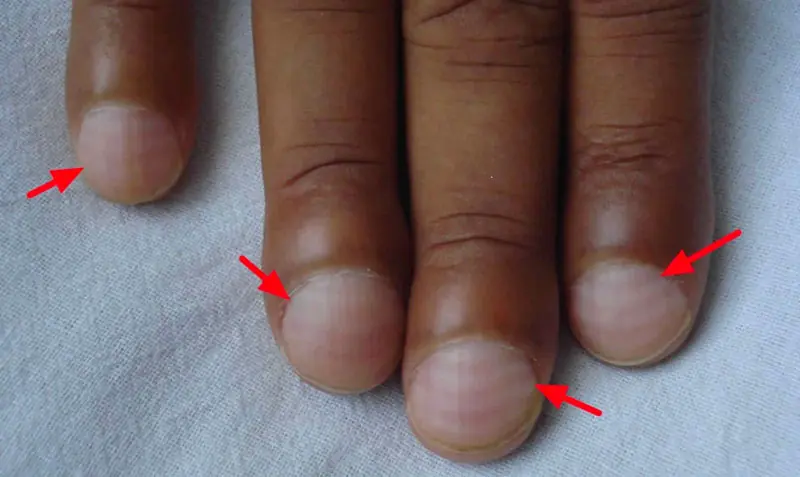
More and more people are dying from heart failure, doctors warn: No matter how difficult it is, you must give up these 4 habits!

More and More People Are Dying from Heart Failure, Doctors Warn: No Matter How Difficult It Is, You Must Give Up These 4 Habits!
Heart failure is one of the leading causes of death globally, and its prevalence continues to rise. Medical professionals emphasize that many heart failure cases are preventable, with lifestyle choices playing a significant role. While certain health conditions cannot be avoided, some everyday habits significantly increase the risk of heart failure. Doctors warn that, no matter how difficult it may seem, these four habits must be eliminated to protect your heart and overall health.
1. Excessive Salt Intake
One of the most significant contributors to heart failure is high sodium intake. Excess salt causes the body to retain water, leading to increased blood pressure. Over time, high blood pressure weakens the heart and increases the strain on it, eventually leading to heart failure. The World Health Organization (WHO) recommends that adults consume no more than 2,000 milligrams of sodium per day, but many people regularly exceed this limit due to the high sodium content in processed foods, restaurant meals, and snacks.
How to Avoid This Habit:
-
Avoid processed foods, canned soups, and salty snacks.
-
Cook fresh meals at home using fresh ingredients, and opt for herbs and spices for flavor instead of salt.
-
Read nutrition labels to check for hidden sodium content in packaged foods.
2. Sedentary Lifestyle
Modern life is often sedentary, with many people spending hours sitting at desks, on the couch, or in cars. Lack of physical activity is a major contributor to heart disease and heart failure. Regular exercise helps improve circulation, maintain a healthy weight, and reduce blood pressure, all of which are essential for heart health.
How to Avoid This Habit:
-
Aim for at least 150 minutes of moderate-intensity exercise or 75 minutes of vigorous exercise per week.
-
Take short breaks throughout the day to stand up, stretch, and walk around.
-
Consider activities like walking, cycling, swimming, or dancing, which are easy on the joints and promote heart health.
3. Smoking and Excessive Alcohol Consumption
Smoking is a major risk factor for cardiovascular diseases, including heart failure. It damages blood vessels, increases blood pressure, and reduces the amount of oxygen delivered to the heart. Similarly, excessive alcohol consumption weakens the heart muscle and increases the risk of heart failure. Many people may not realize the long-term damage these habits cause.
How to Avoid These Habits:
-
If you smoke, seek support to quit. There are many resources available to help you, including counseling and medication.
-
Limit alcohol intake to moderate levels (one drink per day for women, two for men).
-
If you have trouble cutting back on alcohol, consider seeking professional help or support groups.
4. Chronic Stress and Poor Sleep
Chronic stress and lack of sleep both contribute to poor heart health. Long-term stress leads to increased cortisol levels, which can raise blood pressure and harm the heart. Additionally, insufficient sleep impairs the body’s ability to repair and regenerate cells, including those of the heart. A lack of restful sleep also disrupts the body’s metabolism, contributing to obesity, high blood pressure, and diabetes — all of which increase the risk of heart failure.
How to Avoid This Habit:
-
Practice stress-management techniques such as mindfulness, deep breathing, and meditation.
-
Aim for 7-9 hours of quality sleep per night. Create a relaxing bedtime routine, limit screen time before bed, and ensure your sleep environment is cool, quiet, and comfortable.
Conclusion
The rising rates of heart failure are a stark reminder of how lifestyle habits can impact heart health. By eliminating habits like excessive salt intake, sedentary behavior, smoking, excessive alcohol consumption, and chronic stress, you can significantly reduce your risk of heart failure and improve your overall well-being. Although these changes may be difficult at first, the long-term benefits to your heart and health are worth the effort. Your heart deserves the best care, and making these changes is the first step towards a healthier life.
News in the same category


When sleeping, the body has 2 unusual signs that signal liver and kidney health problems, need to be vigilant

Chicken is a valuable and healthy food, but if used incorrectly it can lead to many serious health problems

Tetanus Infection – Early Warning Signs

26-year-old man di.es suddenly from heatstroke, doctor points out 4 dangerous warning signs of the body in hot weather

Man Di.es Suddenly During Morning Exercise – Doctor Warns: Avoid These 3 Common Mistakes When Working Out Early

Be careful with these foods that contain a lot of para.sites

Even if you like them, it’s best to avoid

Doctors warn that these 6 oils should be limited, because if consumed in excess, it can increase the risk of colorectal cancer, liver cancer, breast cancer and prostate cancer

Startled: 5 signs on the hand warn that the lungs are in danger

Woman Di.es After Using Air Conditioner: Doctors Warn of a Critical Mistake Many People Make

Shoc.king: 5 Alarming Signs in Your Hands That May Indicate Lu.ng Problems

COVID-19 returns, advice for middle-aged and elderly people: Touch 2 things less, eat 3 dishes more, do 4 things well, strengthen immunity

Woman gets meningitis from a food that is in every house's refrigerator

25-year-old man pees "strange green liquid" and falls into a deep coma due to deadly poison commonly found in a popular dish

3 Common Household Items Loaded with Toxins: Many Families Use Them Daily Without Realizing the Danger

What to Do If You Catch the New COVID-19 Variant: Expert Tips for Easing 4 Common Symptoms

I'm a doctor and I threw my air fryer in the BIN - and you should too for ca.n.cer reasons

Study of 900 COVID-19 patients finds: Vitamin helps restore physical strength faster
News Post

Why should you put a lemon at the head of your bed?

Honey is good but not for everyone

Growing Tomato Plant From Tomato Slice Time Lapse

How To Grow Rosemary From Seed Or Cuttings – Everything You Need To Know

Tips to prevent clothes from tangling and wrinkling in the washing machine

Rice Grains Unleashed: Supercharge Your Plants with Natural Strength and Vitality

What the small hole on a kn.ife is for?

How many fingertip whorls do you have? The number of whorls you have could reveal secrets about your future

Think Salmon Is the King of Omega-3? Think Again—This Humble Supermarket Fish Takes the Crown

Masks to Eliminate Wrinkles Between the Eyebrows

When sleeping, the body has 2 unusual signs that signal liver and kidney health problems, need to be vigilant

The safest and most timely way to give first aid to someone with electric sh.o.ck

Chicken is a valuable and healthy food, but if used incorrectly it can lead to many serious health problems

Tetanus Infection – Early Warning Signs

According to Their Lights

Gentle Hand

26-year-old man di.es suddenly from heatstroke, doctor points out 4 dangerous warning signs of the body in hot weather

Captain Eli's Best Ear

How to Graft a Rose Bush of Different Colors Step-by-Step
